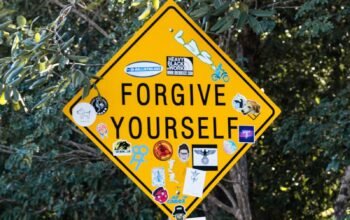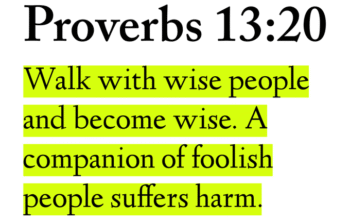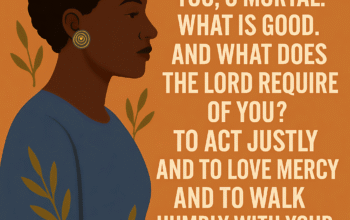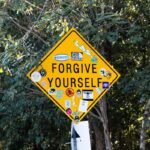We don’t always think of shepherds as prophets. But Amos was not a man of titles or polished training. He was a shepherd, a farmer, a dresser of sycamore-fig trees. Ordinary by every measure. Yet God placed a burning word in his mouth and sent him to deliver it to a people who did not want to hear it.
Israel, at that time, was living in prosperity. The markets were busy. The feasts were full. Music and laughter filled the streets. On the surface, life looked blessed. But beneath the surface, something was broken.
The poor were being trampled. The widows and orphans were neglected. The courts were corrupt. The wealthy sat at tables of abundance while their neighbors went hungry. And in the middle of all this, worship had become routine—songs were sung, sacrifices made, festivals observed. But they were hollow. Their mouths praised God, but their hands crushed His people.
It was into this reality that Amos declared God’s warning:
📖 “I will turn your feasts into mourning, and all your songs into lamentation. I will bring sackcloth on every waist, baldness on every head. I will make it like mourning for an only son, and its end like a bitter day.” (Amos 8:10)
That’s a heavy word. It’s hard to picture. Why would God say this?
The Loss of Joyful Seasons
Feasts were meant to celebrate God’s goodness, to remember deliverance, to bring people together in joy. Yet God said, I will turn your feasts into mourning. Imagine your most joyful holiday suddenly becoming a day of grief. That’s what injustice does—it rots the foundation of joy until even our celebrations feel false.
Community-Wide Grief
This wasn’t about one person or one family. Amos said all the songs would turn to lament. Oppression doesn’t stay contained; it spreads. It poisons communities, institutions, even the songs of worship. When people ignore the cries of the vulnerable, the grief eventually finds its way to every doorstep.
The Depth of Loss
Amos compares the grief to losing an only son. In that culture, an only son represented the future, the family’s hope, its continuation. To lose him was devastation. That’s the kind of sorrow God says will come when people choose cruelty and call it righteousness, when they lift up worship but tear down their neighbor.
The Spiritual Lesson for Us Today
Amos is reminding us of something eternal:
- A society that ignores justice will eventually be forced into lamentation.
- A people who pretend at worship while living in cruelty will see their celebrations turn bitter.
- God is not mocked—when oppression continues unchecked, joy cannot last.
But this is not only a word of warning. It is also an invitation. Amos, like so many prophets, was calling people back to God. He was calling them back to real worship—worship proven in justice, compassion, honesty, and care for the poor.
When justice flows, joy is not stolen. When righteousness is honored, songs remain songs of celebration. When people walk in truth, feasts stay feasts.
Why This Matters Now
We live in times when it feels like the world is upside down. Songs do turn bitter. Celebrations are shadowed by grief. Too often, joy collapses because the foundation beneath it was never steady.
Amos reminds us: joy that ignores justice will not last. Peace that silences the suffering is not real peace. But God’s vision is still here. “Let justice roll on like a river, righteousness like a never-failing stream.” (Amos 5:24)
That’s how communities heal. That’s how songs stay sweet. That’s how celebrations endure.
A Word to Carry in Your Heart
If the feasts feel heavy, if the songs have lost their joy, Amos points us to why: the world is aching for righteousness. The invitation is not to despair but to return. Return to God. Return to justice. Return to compassion. Return to worship that is true.
Because when justice lives among us, mourning will not have the final word. God still promises comfort. He still promises restoration. He still promises joy.
📖 “Weeping may endure for a night, but joy comes in the morning.” (Psalm 30:5)
✨ Reflection:
How can I live today so that my song remains sweet in His ears?

















